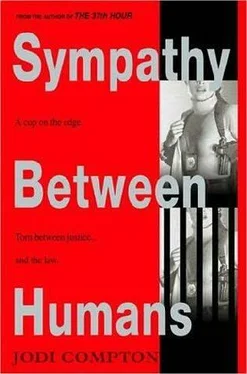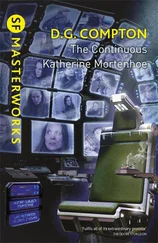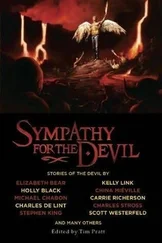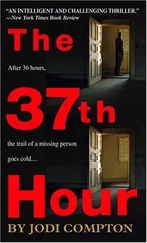She winced.
“I know it sounds like a lot,” I said. “But I wouldn’t bargain-hunt in this case. If you don’t get somebody good, it’ll take longer to find Aidan. You’ll end up paying one way or another. And,” I added, “it’s not unheard-of for unethical investigators to set their rates low to get people in the door, then drag their heels and pad their hours. You don’t end up saving money at all.”
“I see.” Marlinchen was starting to look lost. “How many hours do you think it would take for them to find him?”
“I really wouldn’t feel comfortable estimating,” I said. “They could find him with three phone calls. Or it could take weeks.”
“I see,” she said again. Obviously, she wasn’t feeling any better about the situation, and it wasn’t hard to guess why.
“It’s money, isn’t it?” I said.
The Hennessys lived in a wealthy enclave on the lake; I’d assumed that not only was Marlinchen capably handling the household affairs but that, in doing so, she was drawing on a comfortable sum of her father’s savings. At least, I had until just now.
“I know we look in good shape financially,” Marlinchen said. “But I only have access to Dad’s checking account; he gave me his ATM number. But for everything else, I need to be his conservator, and I can’t do that until I turn 18. Even then, there might be some delays. He has aphasia; it’s a speech and comprehension disorder. Dad needs to recover enough that an officer of the court can see that he understands what’s being said to him, and that the mark he’s making really represents his desire to make me a conservator.”
She sounded surprisingly knowledgeable. “Does your father have a lawyer who’s helping you with this?” I asked.
Marlinchen nodded. “I don’t know that I’d call Mr. DeRose ‘Dad’s lawyer,’ but he helped with some things when Mother died, and when I called him, he was willing to do the conservatorship work on contingency. I can pay him once I get access to the accounts.”
I hoped DeRose was someone ethical; this slender, tentative 17-year-old with a wealthy father would look like a slot machine on two feet to a lawyer who wasn’t.
But with Marlinchen’s very next words, I had to reconsider the wealthy father part.
“Even then,” Marlinchen went on, “there’s just Dad’s passbook savings to tap, and each of us has a college-savings trust. But that’s not a lot of money. A lot of what Dad earned went to paying off this house. Which is fine, but we can’t eat the house and the great view,” she said, gesturing toward the lake. Then she amended her words. “Things aren’t that bad, yet, but there’s certainly not money for a hundred-dollar-an-hour investigator for an open-ended period of time. That’s why I was hoping that someone on the police here would find Aidan’s case had enough merit to take it on.”
I was starting to feel like those old-time aviators who took off from New York for the West Coast on a cloudy day, got turned around in a fog bank, and ended up committed to a trip to Europe. I’d wanted to help Marlinchen, but I’d also wanted it to be short and simple. And for a moment, it had seemed like it was going to be: I’d found Hugh Hennessy and determined that his daughter’s reasons for covering up his absence, while misguided, weren’t criminal. I’d thought, then, that I could simply reassure Marlinchen that Aidan was probably okay, recommend a competent private investigator, and forget the whole thing. I’d thought I could sum up the Hennessy affair in three words: Not My Problem.
Instead I found that Marlinchen was alone with a houseful of younger siblings with no adult relatives to call on, and despite her father’s literary successes, without a comfortable supply of money. Now I was summing up the Hennessys in four words: No End in Sight.
And my goddamn ear was starting to hurt again. The aspirin was wearing off, and the pain was beginning to ramp up from its dull, medicated ache toward the sharp throb I’d woken up with the last two mornings. It was driving nobler feelings from my mind.
“I wish it were just a matter of merit,” I said. “But Hennepin County pays me to investigate cases where the law has been broken within its borders. That’s not the situation here. Look, I’ll talk to the PIs I know, see if one of them won’t take you pro bono. Maybe-”
A rustling from beyond us, the front of the house, made Marlinchen look up. Three boys, loaded down with backpacks, trooped into the kitchen. Their idle conversation stopped short when they saw me with their sister.
None was blond like Marlinchen; they had Hugh’s brown hair. The youngest boy’s was quite shaggy, but other than that, they looked well groomed and clean, and obviously healthy.
Marlinchen slid from the stool. “Guys, this is Detective Sarah Pribek,” she said. “I spoke to her the other day, about Aidan. You remember I said I was going into the city to do that.”
One of the boys, a muscular kid in a sleeveless T-shirt, spoke. “I thought that-”
“We can talk about it later,” Marlinchen said. She carried on with introductions. “Sarah, this is Liam, he’s 16,” the tallest boy, thin, with longish, slightly darker hair and wire-rim glasses, “and Colm, he’s 14,” the well-built boy who’d spoken, “and the little guy is Donal, 11.” Donal was the shaggy-haired one; underneath the mop his face was unformed, like children’s often are.
“It’s nice to meet you all,” I said, “but I really should get going. I’ve got to be at work.” To Marlinchen I said, “I’ll make those phone calls I mentioned, tonight or tomorrow, and get back to you with a referral.”
It wasn’t going to be an easy sell, I thought, but maybe I could catch one of the PIs I knew in a generous mood.
Marlinchen nodded. “Let me walk you out,” she said.
Outside on the deck, she turned earnest again. “Detective Pribek, you’re not going to report us, right?” she asked. “To Family Services?”
“I’m legally required to, Marlinchen,” I said.
Her shoulders dropped infinitesimally, and she looked away from me, toward the lake.
I didn’t know why she felt the way she did, as if she and her brothers were being sentenced to an orphanage of times past, with high Gothic gates and meals of thin gruel. But suddenly I saw myself through her eyes and didn’t like what I saw. I’d come in here and seen evidence of her careful housekeeping and her cooking and the obvious love she had for her younger brothers, and sorry, it wasn’t good enough and I’m reporting you to the county and by the way, I don’t care where your brother is. You want to find him, pay up.
“Look,” I said, relenting, “maybe I could help you out a little with Aidan.”
“Really?” she said.
“You said you’ve only got school until noon, right? Why don’t I come out tomorrow around one, and we can talk about this some more.”
To say that Marlinchen Hennessy smiled didn’t quite do it justice. Throughout our short acquaintance, she’d never made more than a small smile of greeting. I wasn’t prepared for the sight of her natural happiness; it was brilliant as the first fire-blossom of a lit match. The thought of getting more involved with the Hennessys wasn’t entirely appealing, but it was touching to see how much an offer of help meant to Marlinchen.
I gave her my card. “Both cell and pager are on there,” I said. “In case you have a schedule conflict, or something.”
“I won’t,” she said.
***
As soon as Iwas back in the car, I groped in my shoulder bag for the aspirin bottle. It wasn’t there.
It’s in the trash can in your bathroom, genius, where you threw it this morning after taking the last of the aspirin. You were going to pick up some more, remember?
Читать дальше












